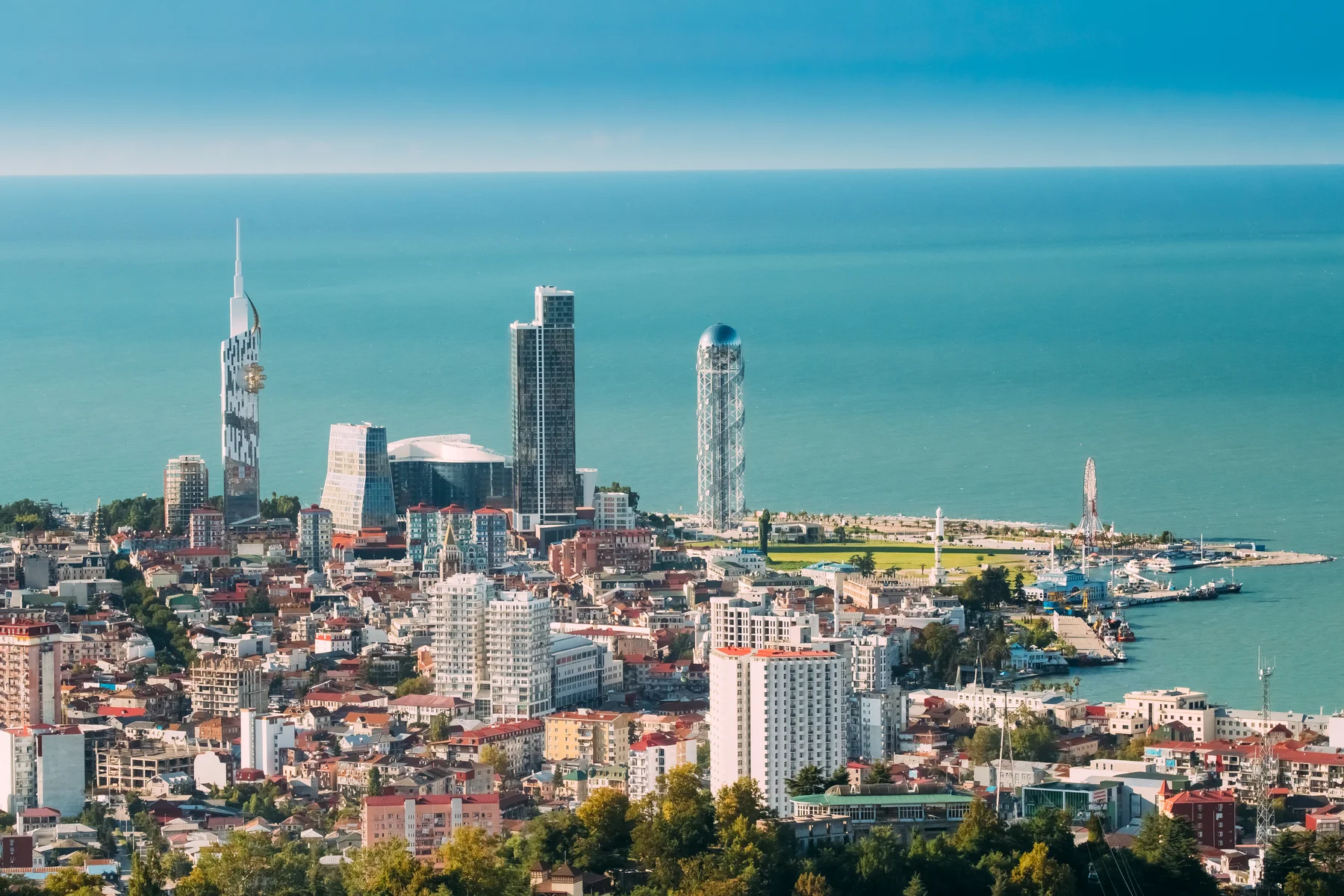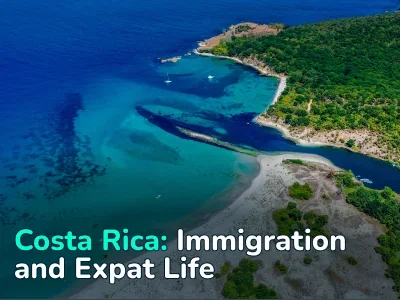
All Ways to Obtain Georgian Citizenship
In 2025, Georgian citizenship is attracting increasing attention from foreigners. A Georgian passport grants visa-free access to 137 countries, including the Schengen Area, the UAE, and CIS states.
The government is actively responding to this demand by expanding programs aimed at attracting foreigners: from simplified naturalization procedures to the new investment citizenship program launched in 2024–2025.
However, the process of acquiring citizenship remains strictly regulated, with clear requirements and limitations, which we will examine in detail in this article.
Overview of the Benefits of Georgian Citizenship
As mentioned earlier, Henley Passport Index ranks Georgian citizenship at 35th place, providing visa-free or visa-on-arrival access to 137 countries. But this is far from its only advantage:
- Economic opportunities and business incentives. Georgia maintains a relatively liberal tax regime: small businesses (with turnover up to USD 188,700) are taxed at only 1–3%, while microbusinesses with turnover up to USD 11,322 pay nothing. The corporate tax rate is higher at 15%, but reinvested profits are exempt.
- Social benefits. One of the benefits of Georgian citizenship is access to free secondary education. Higher education is tuition-based, but citizens pay lower fees than foreign students. Citizens are also entitled to free basic medical services in public clinics and can access subsidized insurance programs.
- Safety. Georgia ranks among the world’s top 20 safest countries. Crime rates in Tbilisi and Batumi are lower than in most European capitals.
- Tourism appeal. Georgia receives around 7 million tourists annually. Citizenship offers opportunities to invest in the tourism sector, particularly in real estate. For example, rental yields in Batumi reach 10–12% per year, significantly higher than the 5–6% typical in European markets.
Ways to Obtain Georgian Citizenship
Direct acquisition of Georgian citizenship is rare. In most cases, a foreigner must first obtain a residence permit and, after living in the country for 5–10 years, apply for Georgian citizenship through naturalization. However, there are other legal pathways.
Citizenship by Birth
The most common option is citizenship by birth. It is automatically granted to children born to a Georgian citizen or on Georgian territory, though the latter comes with certain conditions.
Georgia citizenship requirements:
- One parent is a Georgian citizen at the time of birth.
- The child is born in Georgia to stateless persons or unknown parents.
- A child born in Georgia to foreign parents does not automatically receive citizenship if the parents hold citizenship of another country.
The process starts by submitting an application to the House of Justice or the local Civil Registry Office. Required documents include the child’s birth certificate, the passport of the Georgian parent, and the application form. Processing rarely exceeds 10 working days, as the procedure is simplified and does not involve additional checks.
Citizenship by Naturalization
This is the primary route for foreigners who have lived in Georgia long-term and integrated into society.
Main Georgia passport requirements:
- Continuous and legal residence in Georgia for 10 years.
- Knowledge of the Georgian language (B1 level), history, and basics of national law (based on the Constitution and the Organic Law on Citizenship).
- Proof of employment, business ownership, or property (minimum monthly income of 1,200 GEL / USD 453, or assets worth at least 100,000 GEL / USD 37,735).
- No criminal record or threats to national security.
The process begins with obtaining a residence permit (through work, business, investment, or study). After 6 years, one can apply for permanent residence (PR). Citizenship applications are possible after 4 more years of living in Georgia on PR.
The most challenging step is the exams, which test not only language skills but also knowledge of Georgian history, culture, legal framework, and political system. The passing threshold is 75%.
Required documents:
- Passport.
- Birth certificate.
- Criminal record certificate.
- Proof of residence and income.
- Two recommendation letters from Georgian citizens.
- 3×4 cm photo.
Processing takes 1–3 months, with the final decision made by the Justice House commission; in exceptional cases, by the President.
Citizenship Through Marriage
There is a simplified naturalization path for spouses of Georgian citizens. This is not automatic citizenship but a faster route to apply after 5 years of residence (instead of 10).
Requirements for Georgia citizenship by marriage:
- A legally recognized marriage with a Georgian citizen (registered in Georgia or acknowledged under its law).
- Continuous residence in Georgia for 5 years.
- Citizenship exam (language, history, legislation).
- Proof of financial stability.
The process requires obtaining a residence permit, preferably based on marriage (initially issued for 1 year, renewable). However, the marriage must be genuine, as fraudulent unions are investigated during interviews.
Restoration of Citizenship
Those who previously lost their Georgian country citizenship may restore it if it was lost due to unlawful deprivation, voluntary renunciation, or parental renunciation (for minors). In all cases except unlawful deprivation, applicants must prove Georgian language proficiency (B1).
Procedure:
- Submit an application to the House of Justice or a Georgian consulate.
- Required documents: passport, birth certificate, evidence of lost citizenship (e.g., archival records), criminal record certificate, 3×4 cm photo.
- Government fee: 200 GEL (~USD 75) for standard processing.
- The decision is made by the House of Justice, or in complex cases, by the President.
Proof of citizenship loss must be documented, which is often difficult. For this reason, many applicants apply through Georgian diaspora organizations, which typically assist with document collection and serve as a form of guarantor.

Citizenship of Georgia Through Repatriation
The Georgian Citizenship Law allows individuals with historical or special ties to Georgia to obtain citizenship. This applies to persons who lived in Abkhazia or South Ossetia, those who were forcibly resettled from Georgia, and emigrants who left the country for political or socio-economic reasons before 1991. In rare cases, the program also includes athletes and scientists.
Requirements for repatriation-based citizenship include submitting an application to the House of Justice or a Georgian consulate with all necessary documents: passport, birth certificate, proof of ties to Georgia (such as archival records or deportation certificates), criminal record certificate, and a 3×4 cm photo.
The procedure is personally approved by the President of Georgia and formalized by presidential decree. For this reason, the program is not widely used — in 2023–2024, only about 100 people received citizenship through it, including well-known athletes and scientists.
Citizenship of Georgia by Special Procedure
Previously, individuals born in Georgia before March 31, 1993, could apply for citizenship under a special procedure. To qualify, applicants only needed to pass an interview, a language test, and an exam on Georgian history and the Constitution. The program ended in late 2024, but may be reintroduced in the future.
In practice, this program was similar to “citizenship by descent,” designed to ensure that people born before the specified date had equal rights with those born afterward. The issue arose because, prior to 1993, the country’s old legislation prevented many residents from obtaining Georgian passports.
Georgia Citizenship by Investment (Naturalization)
Investment-based citizenship typically means obtaining Georgia residency by investment (residence card) and later applying for naturalization after 10 years of residence in the country.
Key investment in Georgian citizenship requirements:
- Investments of USD 100,000 grant a 1-year residence permit, renewable annually for up to 12 years. Permanent residence (PR) is not available under this option.
- Investments of USD 300,000 grant a 5-year residence permit, with the possibility of obtaining PR after this period.
- For business investments, the minimum turnover must be USD 50,000 in the 1st year; USD 100,000 in the 2nd year and USD 120,000 annually in years 3–5.
Afterward, the process resembles standard naturalization. Applicants must pass the Georgian citizenship exams (language, history, law) and, in addition to the standard documentation package, provide proof of investment. For real estate, this means ownership certificates or related property documents.
Special Contribution Citizenship Program
Another path to citizenship through investments is the Special Contribution Citizenship Program, launched in 2024–2025 to attract major investors through substantial contributions to Georgia’s economy.
Investment options:
- A non-refundable contribution of €250,000—€300,000 to a state fund.
- A business investment of €3,000,000 or more, creating at least 10 jobs.
- A contribution of €2,000,000 to a state fund, refundable after 5 years (without interest).
Additional requirements include a mandatory audit of the legality of funds (€5000—€10,000 fee), two recommendation letters from Georgian citizens, and one from the Ministry of Economy. The applicant must not appear on sanctions lists or have a criminal record.
Key distinction from Georgia PR by investment: if the candidate meets all conditions, their capital investment serves as a direct basis for acquiring Georgian citizenship — without the requirement of long-term residence in the country.
Nuances of Acquiring Georgian Citizenship
The main benefit of obtaining Georgian citizenship is, of course, the passport. However, it is important to note that Georgian law does not generally allow dual citizenship, meaning that upon acquiring a Georgian nationality, one must renounce their previous passport. There are, however, exceptions depending on the pathway of acquisition and the President’s decision:
- Repatriation. Individuals who obtain citizenship based on residence in Abkhazia or South Ossetia, forced resettlement, or outstanding achievements (science, culture, sports) may retain a second citizenship.
- Restoration of citizenship. Former Georgian citizens may retain their foreign citizenship if permitted by the President.
- Special Contribution Citizenship Program (2025). This new investment program allows investors to retain their second citizenship without additional restrictions.
- Children. A child who acquires Georgian citizenship through a parent may hold dual citizenship until age 18, at which point they must choose one.
Applications to retain dual citizenship must be submitted at the same time as the citizenship application. Authorities review them individually, and approval is not guaranteed. In 2024, only about 200 people were granted dual citizenship, with 60% through the investment program and 30% through repatriation.
Loss of Georgian Citizenship
Another important nuance is the possibility of losing Georgian citizenship. This can occur voluntarily or involuntarily. Grounds for termination include:
- Voluntary renunciation. A citizen may give up citizenship if they acquire another nationality or for personal reasons.
- Unlawful acquisition. Citizenship is revoked if obtained through forged documents, false information, or concealment of facts affecting the decision.
- Threat to national security. Citizenship can be withdrawn if the individual engages in activities deemed harmful to state security or national interests, for example, terrorism, espionage, or anti-state actions.
- Foreign military or government service. Citizenship is revoked if a person voluntarily serves in the armed forces, police, or state bodies of another country without Georgian government authorization.
Assistance With Obtaining Georgian Citizenship
Acquiring Georgian citizenship is far from straightforward and often involves significant bureaucracy. To simplify the process, applicants may seek assistance from professionals and specialized organizations:
- Government institutions. The Public Service Hall (House of Justice) accepts applications, processes them, and provides free consultations on required documents and criteria. However, they do not offer legal support, document translation, or exam preparation.
- Licensed law firms. Both local and international firms provide full assistance with all stages of the citizenship process, but at a cost. A basic assessment of an applicant’s case and recommendation of the best pathway usually costs USD 500–1000, while document preparation and translation add another USD 1000–3000.
- Immigration lawyers. These specialists are the most experienced in handling Georgian citizenship cases. They provide personalized support, particularly in complex situations such as appealing rejections or securing permission for dual citizenship. Fees generally start at USD 100–300 per hour for consultation, while document preparation and court representation may cost USD 2500–7000. Suitable lawyers can be found through the Georgian Bar Association registry or via referrals from the Public Service Hall.
Frequently Asked Questions About Georgian Citizenship
How can I obtain Georgian citizenship directly?
Direct acquisition of Georgian citizenship is only possible through the Special Contribution Citizenship Program or, in exceptional cases, by a presidential decree. The latter usually applies to repatriation programs or the restoration of citizenship after its loss.
Other pathways — such as citizenship by descent (parental citizenship), naturalization, or marriage — require first obtaining a residence permit and living in Georgia for at least 10 years (or 5 years if married to a Georgian citizen), plus passing exams in Georgian language, history, and legislation.
Is dual citizenship allowed in Georgia?
By law, dual citizenship is generally prohibited in Georgia. It is only possible with explicit presidential permission, most often granted in cases of repatriation or restoration of citizenship. Even then, it is not guaranteed.
The only exceptions are:
- Children under 18, who may hold two citizenships, but must choose one upon reaching adulthood.
- Investors under the Special Contribution Citizenship Program (2025), which allows individuals who contribute significantly to Georgia’s economy (€250,000–€3 million) to retain their original citizenship.
In all other cases, applicants must renounce their previous nationality before obtaining a Georgian passport.
Can I get Georgian citizenship if I was born in the USSR?
Under the 1993 Citizenship Law of Georgia, all persons who permanently resided and were registered in Georgia as of March 31, 1993, were recognized as Georgian citizens.
Thus, someone born in the Georgian SSR but living elsewhere by that date would not automatically qualify for Georgian citizenship by birth.
However, individuals born in Georgia who lost or never obtained citizenship after 1991 may apply under a simplified procedure as persons with “strong ties to Georgia” (e.g., Georgian relatives, birth in Georgia, knowledge of the language and culture). The final decision rests with the President.
What does the Georgian passport look like?
The Georgian passport has a dark blue cover with golden inscriptions. The front side includes:
- the word “პასპორტი / PASSPORT” in Georgian and English;
- the coat of arms of Georgia (featuring St. George on horseback, a shield, and a crown);
- the country name “საქართველო / GEORGIA”.
It is a biometric passport, with an electronic chip symbol displayed at the bottom. Inside, it contains:
- the holder’s personal data (photo, full name in Georgian and Latin script, date of birth, sex, place of birth);
- a unique document number;
- the holder’s signature;
- and a machine-readable zone (MRZ) compliant with ICAO standards.
Can I get Georgian citizenship by buying property?
Buying property in Georgia does not directly grant citizenship, as there is no automatic citizenship-by-investment program tied solely to real estate purchases. However, purchasing property can qualify you for a residence permit (VNL), which may lead to citizenship through naturalization after 10 years of continuous residence. It also can be part of the Special Contribution Citizenship Program (launched in 2024–2025) as the part of significant investments (€2–3 million).
Author
I write informative articles about real estate, investments, job opportunities, taxes, etc.
























